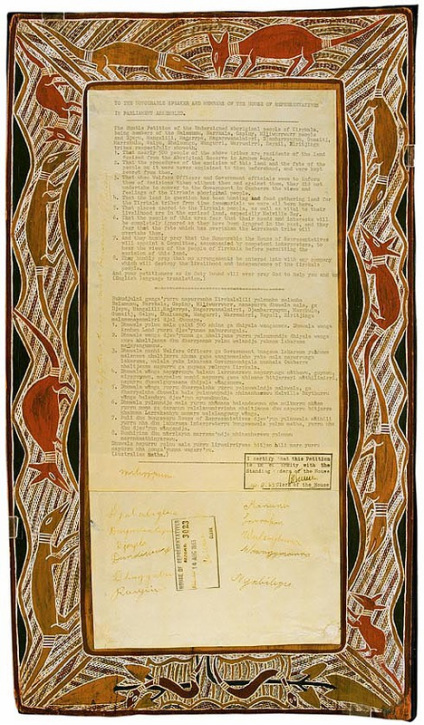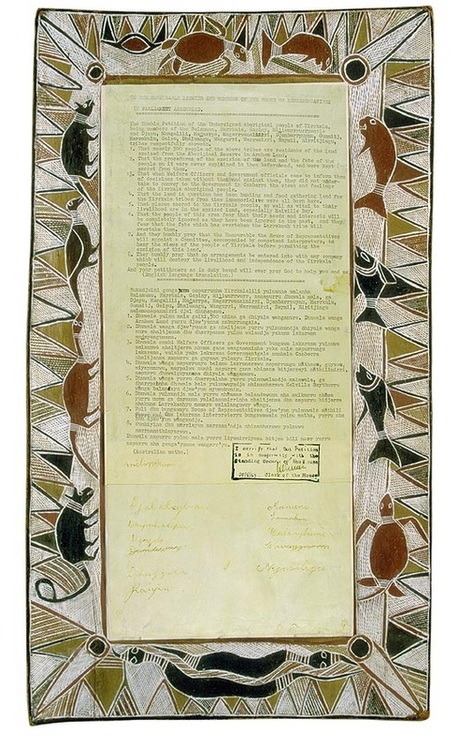YIRRKALA BARK PETITIONS
In 1963 The Yolngu Tribal Sovereign People from Yirrkala in eastern Arnhem Land sent petitions to the Australian Parliament demanding legal recognition of their land and sea rights and objecting the proposed Nabalco bauxite mine at Nhulunbuy (Gove) which would disturb, and restrict access to, sacred sites. The bark panels articulate the title to the country under law of the two Yolngu groups, one Dhuwa, and the other Yirritja. The bark petitions were tabled separately in the House of Representatives in 1963. As a result of the petitions, a bipartisan Parliamentary Committee of Inquiry was established, but despite the Committee’s recommendation of compensation and the protection of sacred sites, the mining leases went ahead. In 1968, the Yolngu Tribal Sovereigns then took their case to the Northern Territory Supreme Court, which became known as the Gove Land Rights Case. Although the case was rejected in 1971, it was an important step for land rights in Australia. The following year, the Aboriginal Tent Embassy was inaugurated in Canberra. The case also prompted the 1973 Woodward Royal Commission into Land Rights and the Aboriginal Land Rights (Northern Territory Act) in 1976.
The Nyoongar Tent Embassy joins NAIDOC 2013 in celebrating the 50th anniversary of the presentation of the Yirrkala Bark Petitions.
The Nyoongar Tent Embassy joins NAIDOC 2013 in celebrating the 50th anniversary of the presentation of the Yirrkala Bark Petitions.
Petitions of the Tribal Sovereign Peoples of Yirrkala 14 August and 28 August 1963
Courtesy of the Museum of Australian Democracy.
Courtesy of the Museum of Australian Democracy.


